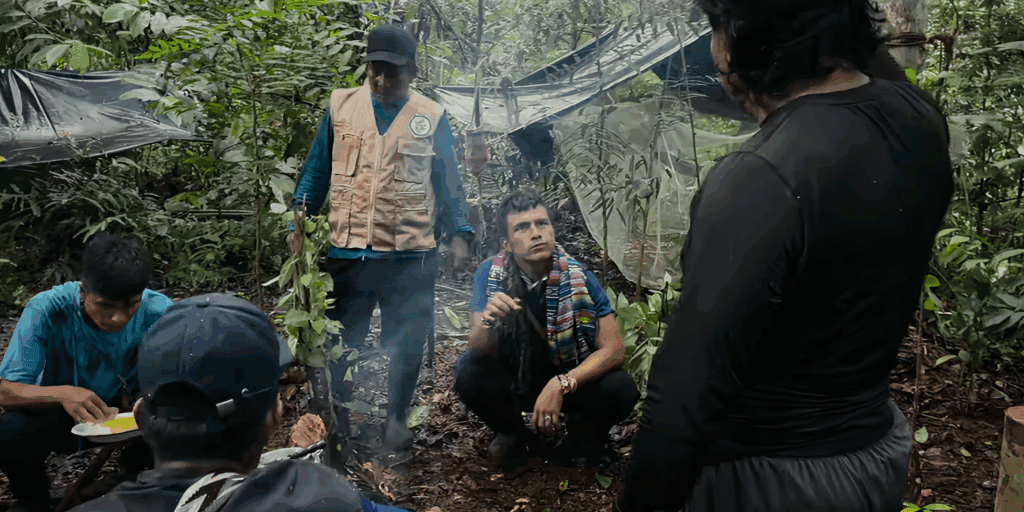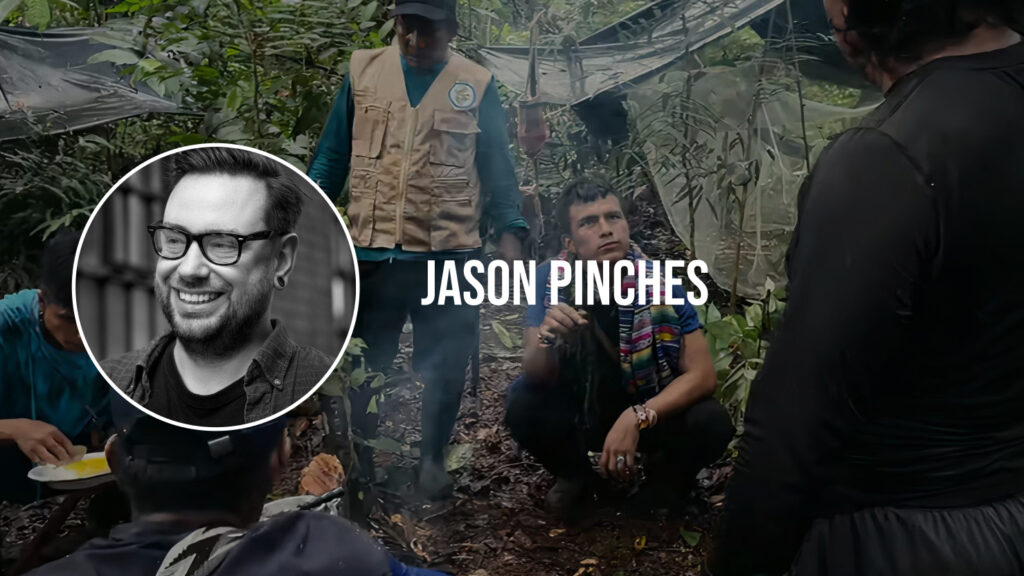From the field to The Farm

Jason Pinches grew up in a small Midlands town, far removed from the heart of the creative industries, with no insider connection to ease the way. But that didn’t stop him. Determined and driven, he set about knocking on every door he could find. Like many from quieter corners of the UK, music played a big part in his early life, and the pull of that noisy, expressive world led him to study Music Tech at Southampton Solent University.
Jason’s sound editing brain couldn’t be kept at bay long, and after the initial introduction, it was a perfect match from there, “The blend of creativity and technical skills felt perfect for me”, he says. He began his career in the video side of post-production, assisting editors, VFX artists and colourists – gaining a solid foundation while carving out time to train in audio wherever possible. Now as a member of the post team at The Farm, Jason has been working on some incredible projects as a sound editor with enthusiasm, experience, and a clear creative vision.
Techniques and tuning in

When it comes to shaping the overall vibe of a soundtrack, Jason’s all about preparation. He says, “Preparing elements at the start helps me establish a cohesive overall feel.” To kick it off he builds up backgrounds for the scenes that pop up throughout the project and plans variations to keep the content fresh and the storytelling flowing. To “lend coherence and identity to the project” he focuses on nailing down signature sounds early, whether that’s a character’s unique audio footprint or the mood-setting hum of a location.
Once again preparation is key for sound being more than filling the space, it is what makes the sound edit really stand out. He likes to, “spend time researching the subject, raiding the sound effects library for new ideas or going out and recording to get exactly what is needed”. It is evident that this extra effort is what really brings his sound editing to the next level. This avoids the sound falling to the background and being a necessary addition, as Jason makes it foundational to the projects cohesive and flawless composition.
Survival of the frequencies

Like most, Jason has learnt on the job, and his approach over time has developed to become sharper and more efficient. He admits, “Time constraints in Post often force you to become efficient”, pushing him to be selective and comfortable parting ways with initial ideas. He is always questioning whether a sound “genuinely enhances the scene” and thinking about how it sits in the mix to avoid overcrowding frequencies. Two brains are better than one, and he doesn’t disagree; “collaborating closely with the mixer early on helps us streamline the creative process”, keeping everything smooth and on point.
For Jason, sound editing is a constant battle for balance between creativity and technical precision. He says, “I try to think about the dramatic intensity of each scene and how busy the sound edit needs to be”. Too many sounds can muddy the mix, so it is a cutthroat process. His goal for all projects is to make sure that every sound counts and helps tell the story.
Projects That Left a Mark
Most creators have projects that stay with them forever, and undeniably for Jason, this was Drive to Survive. “You’ll be seeing waveforms when you close your eyes at night”, he jokes, describing the sheer volume of sound decisions each episode demands, and the brain space it occupies. Its more than just the cool sounds and the fancy tech for Jason, it is about being part of something much bigger. What fires him up is “contributing to the amazing projects coming through our doors” and the top-tier clients and incredible content are the privileges and ultimate payoffs behind that.
Jason worked on The Lost Children; a documentary set in the Colombian Amazon. The director wanted the jungles feel to be “dark and threatening”, sending Jason on a deep dive to all things Amazon. He researched eerie animal calls and layering insect sounds, dripping leaves and creaking trees, the vast scope of what minimal people know, to ensure the sounds confirm and collate with the imaginations of the watcher. For a surreal hallucination scene, Jason had to get creative, recording organic materials to make strange, otherworldly noises. The experience was unforgettable and showed the dedication and intricacies that expert creation require.
Tips from a pro
Being a sound editor is more than having a good ear. Jason stresses the idea of focus and breaking it down. Using timeline markers to organise scenes and events helps him keep everything clear and his brain from overloading. He reveals that, “a passive interest in physics helps, too” as understanding how everyday sounds layer and originate can help spark individual creation. Jason loves the initial bare bones of a project – usually just dialogue and music – as this is “a blank canvas for sound design”. This liberty of transforming a client’s film by building up the soundscape brings Jason intensely rewarding feelings and this creative freedom is what keeps him passionate about his craft.

He acknowledges the industry seems tough to crack, but his real-talk advice is “getting a foot in the door is key”. He wants people to know that even if you can only land a junior role for a completely different film sector, it’s worth it. This invaluable insight and step into the world of creatives is what did it for him and can do the same for you, so, don’t sleep on student films or indie projects if it can go in your portfolio. Finally, he advises to follow sound pros on social media as, “they frequently offer great bits of advice for free and might even answer a DM or two.”


